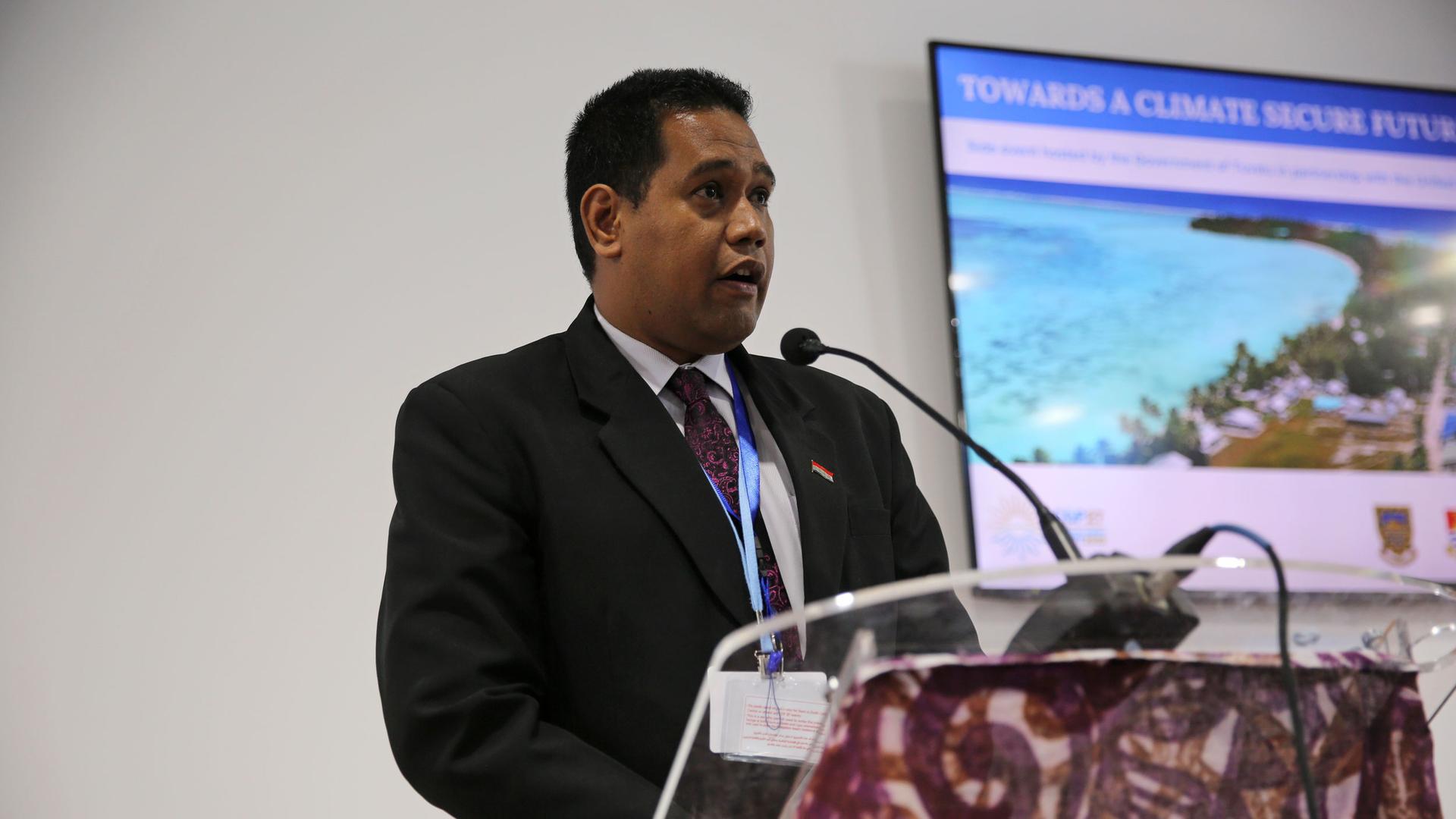Kiribati rejoins collective of Pacific Island states after ‘crisis’ withdrawal period
The island nation of Kiribati says it will return to the Pacific Islands Forum (PIF), ending more than six months of turmoil for the strategic bloc that represents nearly 20 nations and territories across the Pacific Ocean.
Fiji’s Prime Minister Sitivini Rabuka confirmed last week that Kiribati President Taneti Maamau informed him of the country’s return to the group. A statement later issued by the Kiribati government confirmed the move, citing a “fruitful, positive and successful” bilateral meeting with Rabuka in January.
Last July, on the eve of when the PIF was due to meet in Suva, Fiji, for their first in-person meeting in three years, Maamau wrote a letter to the PIF’s secretary general about Kiribati’s intentions to withdraw from the group. His reasons included that the countries of Micronesia — one of the three ethnogeographic groupings in the Pacific — were not being respected by the bloc, nor were their needs being addressed.
“For Kiribati, this is a matter of principle and one that touches on the need for equity, equality and the inclusiveness of all members in the architecture of our premier regional institution,” the letter read.
Moetai Brotherson, a member of French Polynesia’s Assembly, described Kiribati’s exit at the time as “a crisis” because of how important it is for Pacific islands to remain united.
“The Pacific Region nowadays has become, I would say, the center of the world and we are seeing very, very big powers like the US [and] China and other countries, all of them wishing to establish power and diplomacy,” he said.
It was widely speculated that China had been behind Kiribati’s leaving; though it remained unproven. In 2019, Kiribati switched its allegiance from Taiwan to mainland China, evidence of Beijing’s growing influence in the Pacific and its more than 2 million people.
The Pacific Islands Forum works well because its members don’t align with any specific big player, Brotherson said.
“We don’t look at the world as a playground for us to go and grab things. We are very happy with being ourselves, we are very happy with dealing and managing our region.”
“We don’t look at the world as a playground for us to go and grab things. We are very happy with being ourselves, we are very happy with dealing and managing our region.”
So, Brotherson was both surprised and happy when he heard Kiribati would be returning to the fold. He said Pacific Islanders are tired of being “pawns on someone else’s chessboard.”
“As long as we remain united we will be able to express our vision of what our region has, has to be and has to become, and of the role that we have to play on the global scale of things,” Brotherson said.
Established in 1971, the Pacific Island Forum gives leaders spread out across 15% of the earth’s surface a place to meet and discuss ideas.
“And this is why the forum is really important because it is the collective voice of all the small island states, so they can negotiate bargains with the global superpowers,” said Collin Tukuitonga, of University of Auckland.
The body, which tries to rely on negotiation and consensus has, over the years, tackled critical issues such as a nuclear-free Pacific, climate change and protecting the region’s economic interests, he said. They’ve also started a shipping line and supported the only regional university — the University of the South Pacific.
Kiribati’s non-participation in the PIF would have hurt ordinary people, Tukuitonga said.
“Folks in Kiribati would miss out on fishing-related funds for development, funds from the European Union for climate change, preventing violence against women, clean water, health care — you know, practical things.”
Kiribati would also not get as much of a say at a crucial time of geopolitical struggle for dominance in the region between the West and China.
Beijing has made considerably more noise recently as it has sought to promote its ambitious Belt and Road Initiative, pouring money into the Pacific by way of infrastructure projects, as it seeks to link its supply chain throughout the entire world.
But that could be changing, said Alexandre Dayant, deputy director of the Indo Pacific Development Center at the Sydney-based Lowy Institute.
“Aid to the Pacific from China has been actually decreasing since 2016, when it reached a peak,” he said.
According to data from the Lowy Institute, China’s total financing in the Pacific was nearly $334 million in 2016. It has decreased every year since.
Dayant said it’s both a supply and demand issue: On the supply side, China’s economy is facing a slowdown and Beijing may not have the appetite right now for risky, overseas projects.
“On the demand side, I would say that Pacific Island countries have woken up to the fact that the Chinese loans are actually not as profitable and concessional than other loans that they could, that Pacific Island countries could get from other development partners, such as Japan, Australia, and so forth,” he said.
China’s decreasing financial prowess in the region could foster more competition in the Pacific, Dayant said — yet another new reality that the Pacific Islands Forum will need to tackle and work together on to move forward.
Our coverage reaches millions each week, but only a small fraction of listeners contribute to sustain our program. We still need 224 more people to donate $100 or $10/monthly to unlock our $67,000 match. Will you help us get there today?
